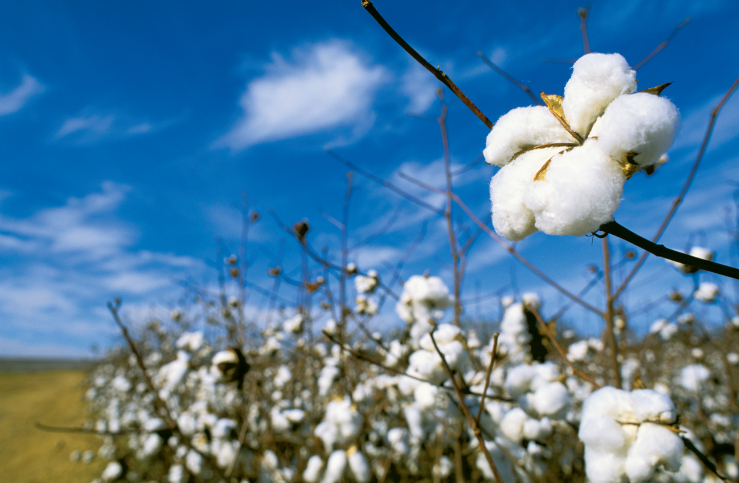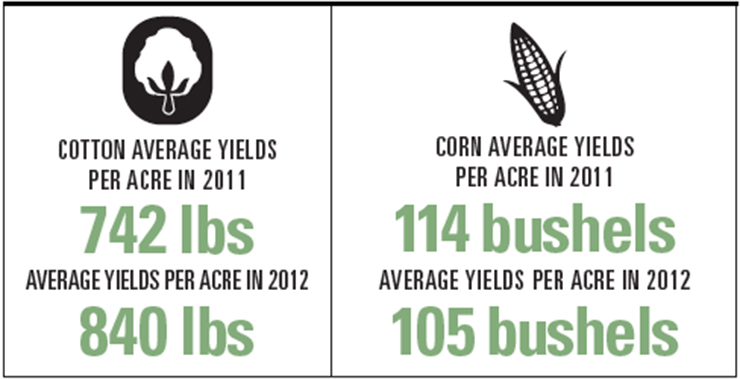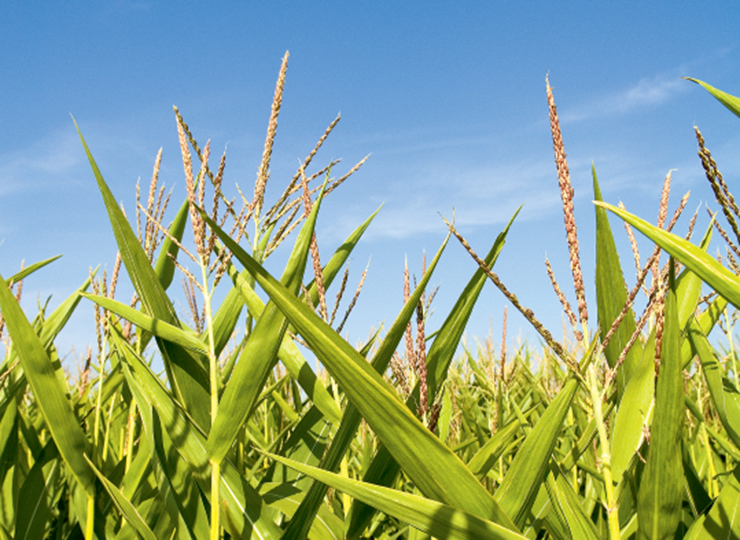Home > Alabama > Alabama Crops & Livestock > Cotton and Corn are King of the Crops
Cotton and Corn are King of the Crops

As a cotton farmer for most of his life and a corn grower since the mid-1990s, Shep Morris sees no reason why the two crops can’t get along.
The Macon County farmer is all for diversity of crops, but he is concerned that cotton is losing its stance in the South, even in the land where it has been considered king.
“Cotton is not the crop that it once was, but it’s still an excellent crop,” says Morris, who owns Morris and Morris Farms in Shorter along with his wife, Rite. “It probably fits our climate (in southern Alabama) better than any other crop, but the economics has kind of tilted away from it.”
“If a person has a good rotation and it works for them, then the person doesn’t need to abandon that for short-term economics,” adds Morris, who farms 1,600 acres of cotton and 1,100 acres of corn. “In other words, if you rotate corn and cotton, you don’t need to go all corn even if the economics point toward it.”
Morris, who was the 2010 Alabama winner of the Swisher Sweets/Sunbelt Expo Southeastern Farmer of the Year award, points to a key combination for why corn has grown and cotton has lessened in market value.
“The ethanol mandate has driven a lot of corn to ethanol production, which is good and has driven the cost of corn up. But at the same time this has happened, we’ve lost our textile industries in the Southeast, and this has hurt cotton.”
Corn prices surged in late summer 2012, primarily due to the drought in the Midwest. In the meantime, the market value for cotton had dropped to around 70 cents since a significant peak in 2011.
“The worst thing to happen to the cotton business was the $2 cotton last year,” Morris says. “If the price last year had gone to 90-95 cents and not gone any higher, we would be much better off today.”
Analysts believe cotton prices should improve somewhat in 2013 as acreage decreases.

Land of Cotton
It’s little wonder Morris is so partial to cotton. His grandfather grew the crop and was a farmer for 65 years, and Morris grew his first cotton at 18 years old. After following his father in a career as an aerial applicator, he eventually turned to farming and has been doing it full-time for more than 25 years.
Morris markets his cotton through the Autauga Quality Cotton Association in Prattville and serves on its board as well. He and several other farmers formed the Milstead Farm Group in 1998, and out of that they were able to build their own cotton gin.
“It’s a very modern facility, and turnout from it is very good,” Morris says. “It allows farmers to kind of own the supply chain going up. That’s another reason to stay in the cotton business.”

Corn’s ‘Huge Demand’
Morris says he can certainly see the attraction of corn (farmers in the state are also finding good cash crops in beans and peanuts). It was valued at more than $178 million in Alabama in 2011, according to USDA statistics, second to cotton’s value at nearly $308 million.
“There’s a huge demand for corn,” Morris says. “The Chinese used to be one of our big competitors (in corn production), and now they’re actually a customer.”
With the onset of GMO corn in the past 15 years or so, yields are much stronger.
“When I was a teenager,” Morris says, “if somebody made 50 bushels of corn grain, they thought that was a magnificent yield, and now that can be done almost by accident. We had some dry land corn that made 180-190 bushels last year. There have been tremendous steps forward in the genetics, and a lot of emphasis has been put on it.”
Morris has earned a reputation throughout the state for his approach to farming in general. Among his methods, he uses a stripper machine for harvesting and is an advocate for no-till technology. And he certainly demonstrates a belief in diversity of crops, as he also grows soybeans, peanuts, wheat and pecans.
But cotton is still king at Morris and Morris Farms.
“We don’t need to abandon cotton,” Morris says. “What we really need is for the textile industries to come back. If we can have an ethanol mandate, maybe we could have a textile mandate.”



